Diary of an Accelerator Lab Mission to Dominica
Mapping the Nature Isle's Blue-Green Tapestry
June 12, 2023
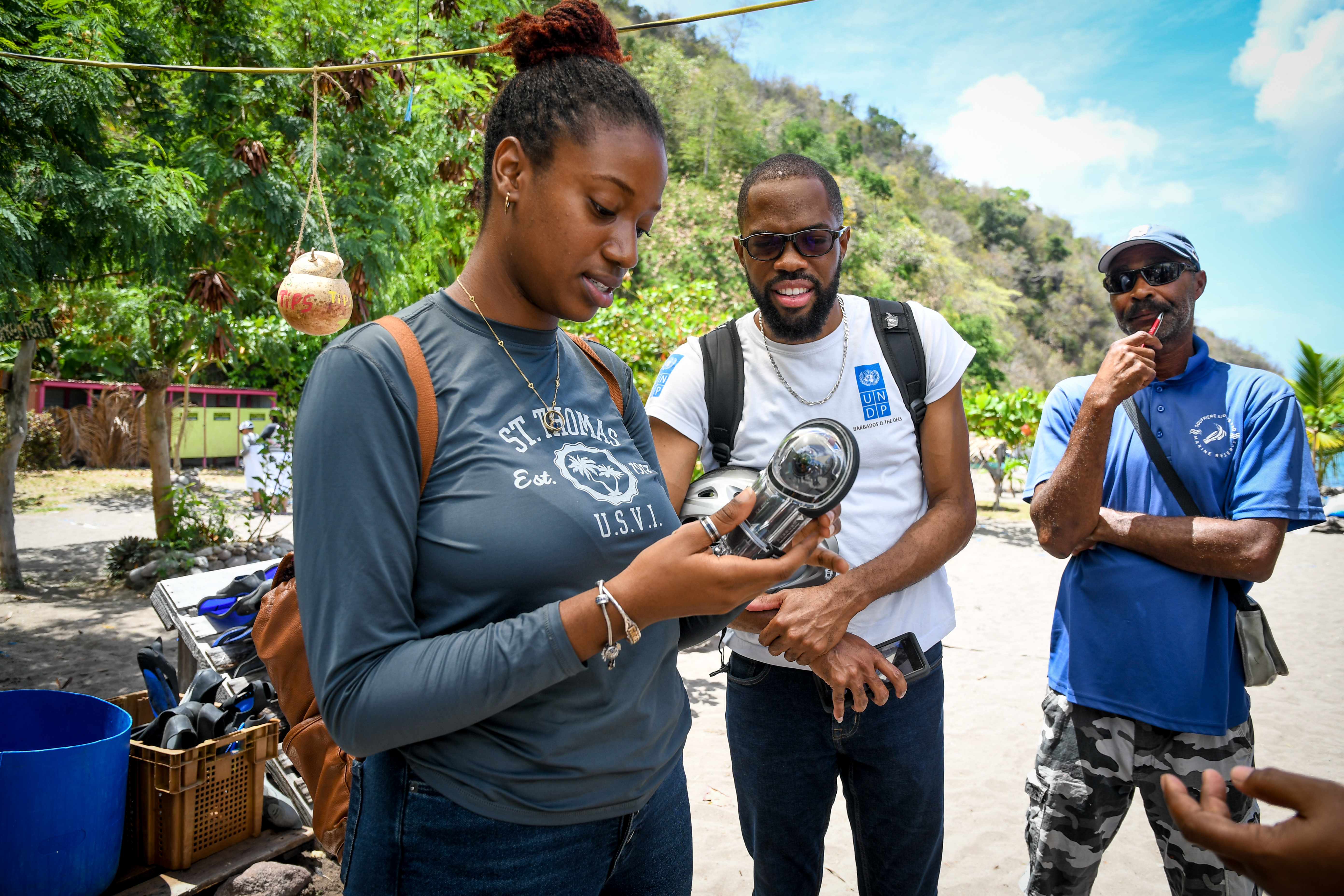
Day 1: Digital workshop with the Dominica Ministry of Agriculture and Fisheries and Ministry of Public Works and Digital Economy
Although we have heard it time and time again, there is something magical and irreplaceable about meeting in person that cannot be replicated online. After years of lockdowns and the inability to physically explore, convene and map solutions in our region, the Accelerator Lab in Barbados and the Eastern Caribbean was elated to get out into the field and explore the Blue and Green Economies up close through our latest Mission to Dominica, otherwise known as the Nature Isle of the Caribbean, and more recently referred to as the country deliberately seeking to become the world's first climate-resilient nation by 2030.
As we descended upon Dominica, we were taken aback by the sheer beauty of the raw nature in view, seen in the country's 300+ rivers, range of high mountains peaking at 4,747 feet, and expansive lush green forests that are home to numerous species, such as the imperial parrot, blue-headed hummingbird and crapaud frog. This provided an illustrative backdrop for us to learn from as we addressed our first order of business: co-facilitation of the Digital Workshop with the Dominica Ministry of Agriculture and Fisheries and Ministry of Public Works and Digital Economy.
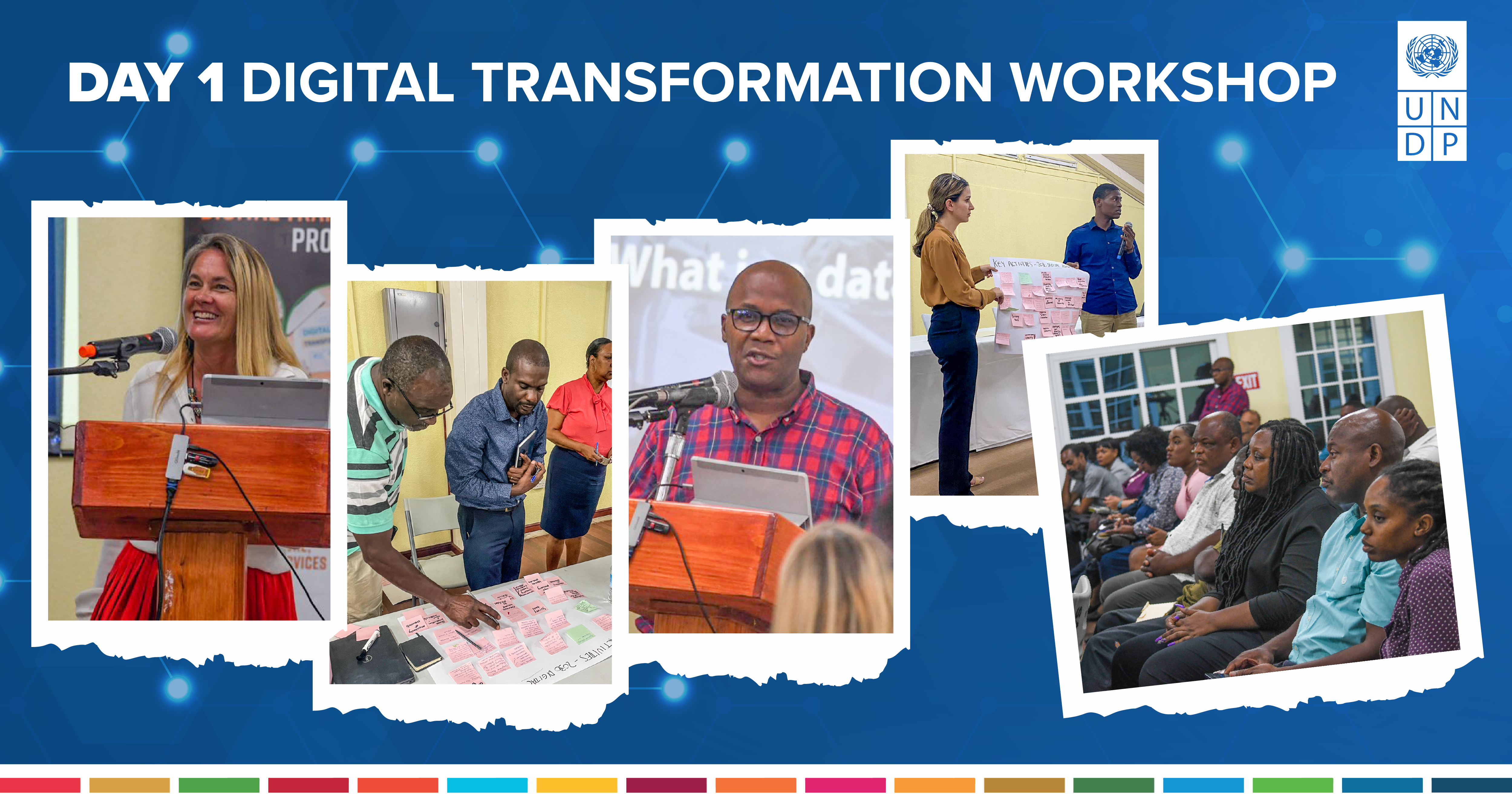
During the workshop, the Lab shared a variety of innovation-based tools and approaches from UNDP in the digital space, including through the Digital X platform and Digital Fitness Programme. Additionally, the Lab facilitated breakout group sessions with local farmers, fishers and agri-processors through a variety of Futures and Collective Intelligence exercises, the primary goal of which was to gather the inputs and perspectives of persons on the ground. Through those gatherings, several themes and patterns began to emerge, including the expressed desire and need to make farming more attractive to younger generations, possibly through the application of renewable energy to farming, enhanced training programs introduced at various school levels and the creation of techniques and products that increase the economic value of farming and fishing.
In being focused on all things digital, the appetite for digital transformation at the workshop was palpable, with participants such as Mr. Robert Tonge, Coordinator of the Government of Dominica Digital Economy Unit, speaking about the time saving merits of new Artificial Intelligence (AI) offerings. In the breakout meetings, group members also spoke of the need for enhanced e-signatures, a national registry of agri-processors, databases connecting producers to agri-processors, portals for support agencies and across the board, improved data collection and analysis was mentioned. From a roadmap perspective, it was noted that to build towards these and other digital solutions, a people first approach is needed, with enhanced capacity building, improved working conditions and greater integration between those operating in various sub-sectors referenced. Support and enthusiasm for these and other transformations was anchored in an evident passion for the Blue and Green spaces, with one farmer, Ken Blanford of Cocoa Valley Eco Farms Dominica, eagerly proclaiming that "We are walking on gold."
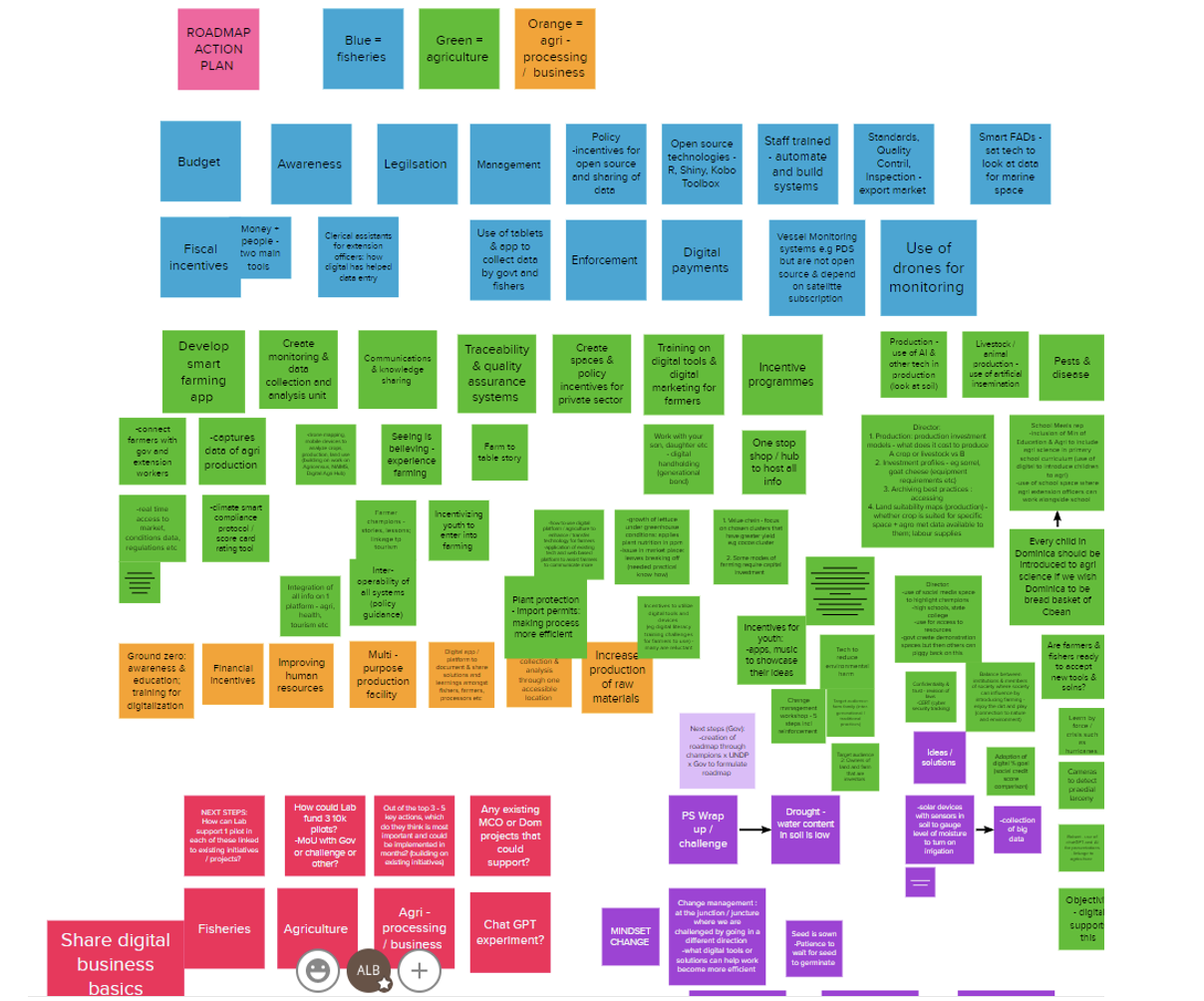
Dominica Digital Roadmap Collective Intelligence Summary Map, Accelerator Lab
Day 2: Kalinago Territory Site & Cocoa Valley Ecofarms Site Visit
During the second day of our Mission, we were pleased to dig our boots into the ground and get out into the field, beginning with a visit to the Kalinago Territory, home to the last remaining tribe of the pre-Columbian Carib Indians, dating back to approximately 3000 BC. Through our connection with the Kalinago Council, several concerning realities were relayed, including that the Kalinago language is dwindling, with no one currently being able to speak the language fluently. As well, numerous skills such as basket weaving are waning, though women are largely leading the charge of continuing those and other practices. All throughout, a strong and inspirational connection to nature was apparent, heard in emphasis placed on raw materials such as Vetiver plants for roof construction and Screw Pine shrubs for baskets. However, due to natural disasters such as Hurricane Maria in 2017 as well as deforestation issues, it was apparent just how fragile this nature-dependent community is, even while living in considerable harmony with the elements.
The Kalinago Territory is also home to several micro enterprises, and the Lab was fortunate enough to visit one of them through a cassava product processing business. Furthering our insights in development on the importance of merging the old and the new together, we saw both worlds collide in the integration of modern and traditional machinery at this agri-business site, with the operators remarking that at times the newer materials are not as expedient as the older ones and that lo-fi tools require less energy. This once again made us reconsider the emphasis that is frequently placed on the benefits of new means of production when older methods have numerous advantages in need of greater consideration, such as being more energy efficient at times. Amidst the whir of cassava flour stirring and cassava cakes being flipped, we also took note of shifts in payment options with MJALAN being accepted, pointing towards the progressive adoption of digital finance among this traditional micro industry.
Lastly, through a connection made at the Digital workshop, we were able to stop at the Cocoa Valley Eco Farm, a nature-based farm that is the product of a father-son duo charged with creating an agro-tourism product rooted in the principles of no chemicals, no mono-cropping and no modified plants. This return to older ways of production also spoke to more recent trends of wilding and letting nature take over in the Green Economy. With seemingly endless root vegetables scattered throughout the soil and ripe fruit hanging from the trees, the positive results of this eco-friendly approach to farming were made clear, particularly as a way to improve irrigation and decrease water usage due to significant shade cover across the soil from the abundant foliage.
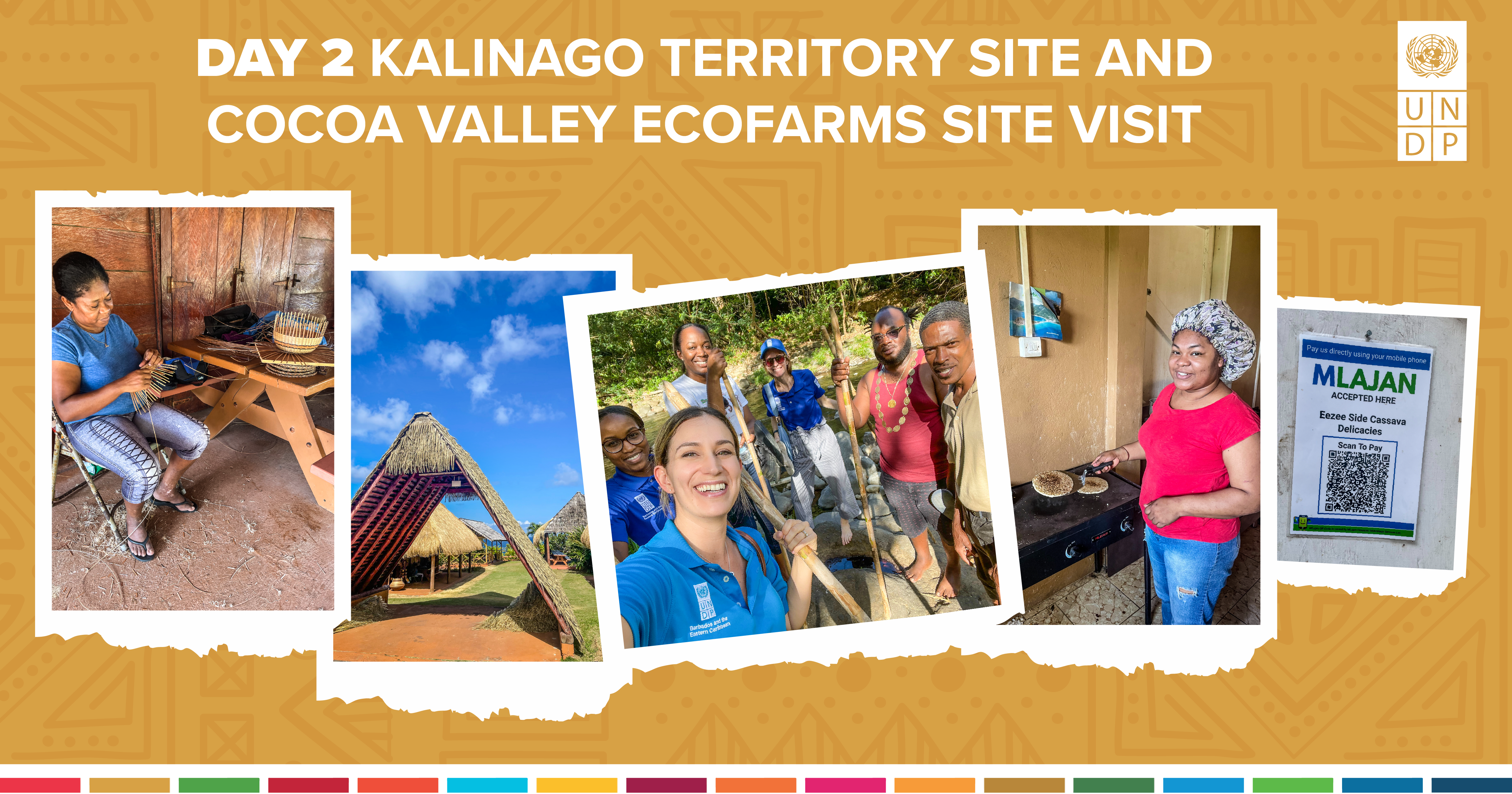
Day 3: EnGenDER Titiwi SVG-DOM Exchange
In collaboration with our Multi-Country Office's (MCO) EnGenDER colleagues, we joined the Knowledge and Experience Exchange, which brought Dominica Titiwi Fishers and Saint Vincent and the Grenadines Tri Tri fishers together. The salangidae fish is commonly referred to as "Titiwi" in Dominica and as "Tri Tri" in Saint Vincent and the Grenadines. The aim of the exchange is to further optimize the economic contributions made by the fishery communities, to assist with making the fishery community climate change resilient and to ensure these efforts are executed with a gender and inclusive focus. The exchange was made possible with support from the Government of Canada and the United Kingdom.
From a Lab perspective, we were fascinated by the chatter and interactions that occurred between fishers, such as in their reference to the development of new salangidae products including lasagnas, punches and pizzas. This spoke to the power of product development and R&D in the fisheries space, which always has the potential for expansion. We also observed the communal nature of this niche of fishing, with many fishers remarking that it is a team sport. In being so intertwined with nature, it was shared several times over that salangidae cycles have been impacted by Hurricane Maria, resulting in different patterns and locations of these small translucent fish that are typically found at the mouths of rivers.
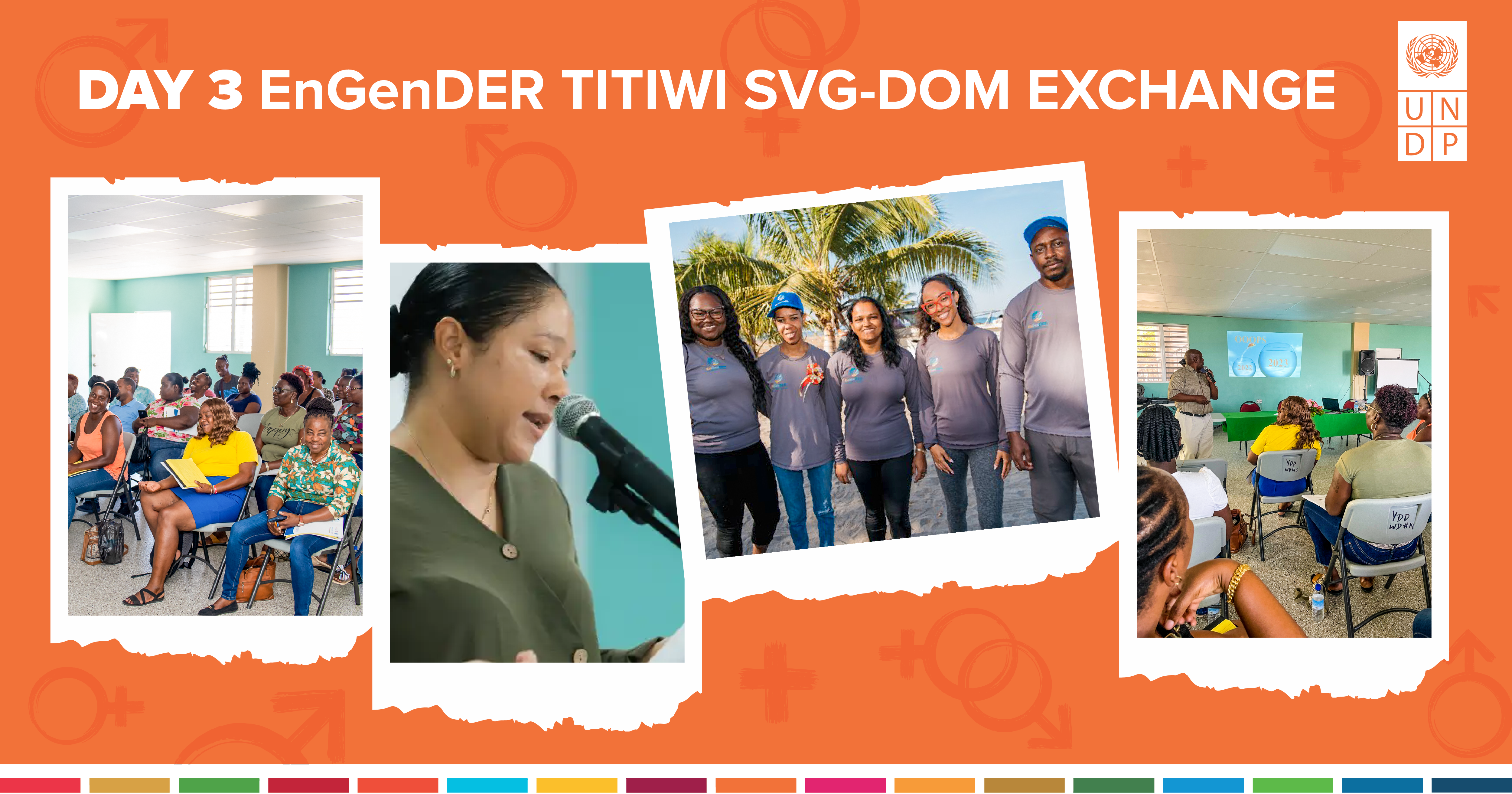
Day 4: Cabrits Site Visit
Led by our Small Grants Programme (SGP) team at the UNDP Dominica Project Office, the final day of our Mission centered on a trip to the Cabrits National Park Marine Section Management Authority (CAPMA), representing a unique intersection between the Blue and the Green at this protected land and sea site located at the north end of the island. Our meeting there with the Tantan Village Development Community and Director of Forestry, Dominica, unveiled numerous areas for experimentation, including improved monitoring of mooring sites through underwater cameras and enhanced data, as well as associated citizen science initiatives.
As we traversed through the national park, which encompasses 2.05 square miles, we met with community members involved in the many facets of Blue and Green life on the peninsula, seen in small scale farming initiatives, divers operating the Portsmouth Association of Yacht Services (PAYS) and raft builders working on the shores. With the PAYS Dominica Yachting Festival, we saw up close how Blue tourism has returned since COVID-19, with the marina area full of sails, also speaking to the potential for degradation should such activities be insufficiently managed. This is a challenge that CAPMA expressed concern about as it balances the tension between preserving the integrity of the marine reserve while sustainably supporting livelihoods that are dependent on human activity and tourism.
In closing this Mission and day, CAPMA illustrated the tremendous growth potential of Dominica alongside the ongoing conflicts presented by recurring storms and hurricanes, with almost everyone having a pre and post Hurricane Maria story to tell. On the reserve, part of this story was told through the coral reefs, where several species have not been seen since Hurricane Maria struck the island. How can we best safeguard Dominica and other Small Island Developing States (SIDS) that are so fragile to environmental shocks in being on the frontlines of climate change devastation? How do we best support livelihoods while avoiding extraction and decline?
The Accelerator Lab in Barbados and the Eastern Caribbean will be exploring these and other questions through upcoming experimentation in the Blue and Green Economies. Please continue along with us on our journey of doing things differently as we continue to move towards an R&D function.
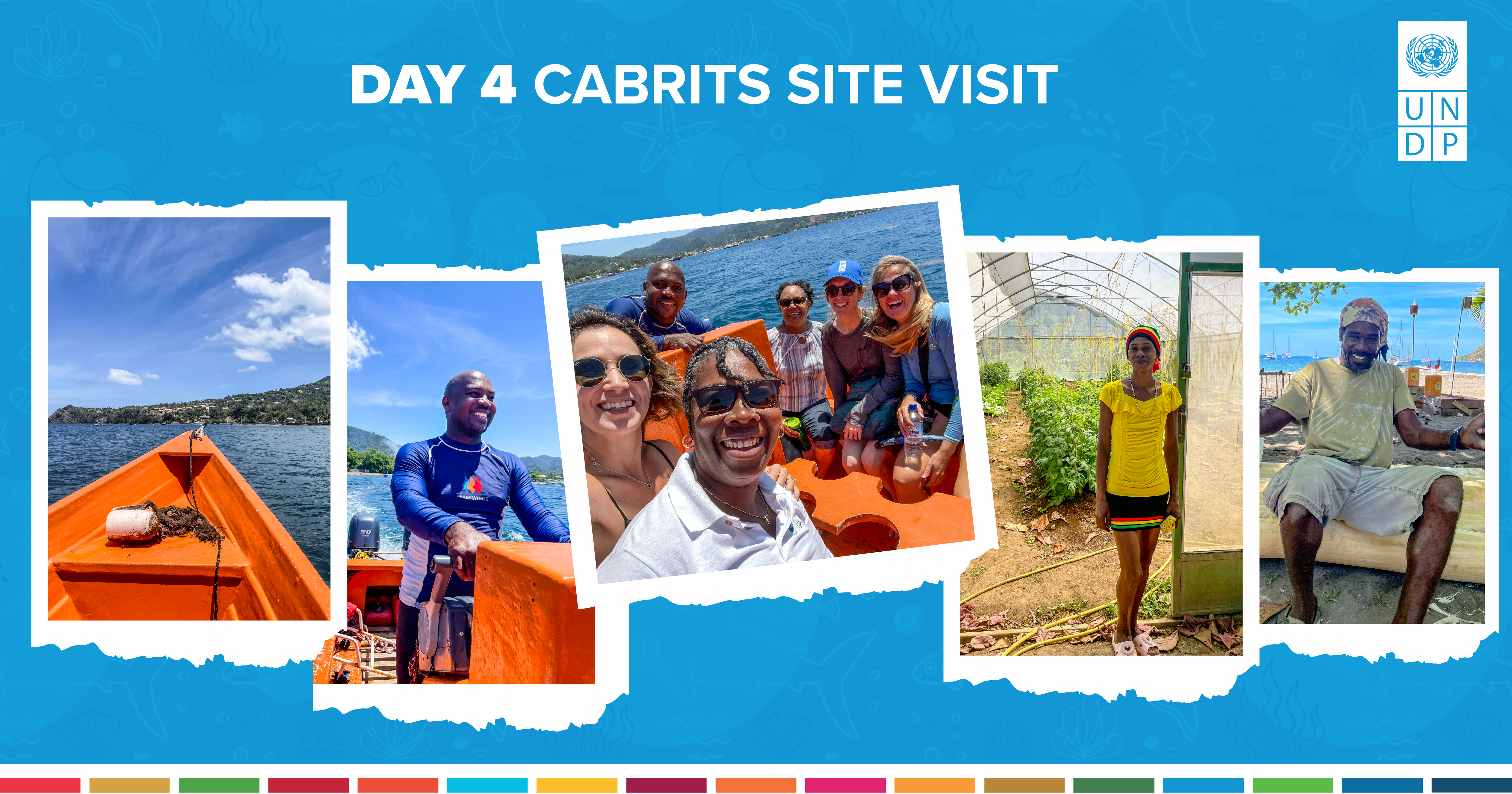
Written by
JORDANNA TENNEBAUM
Head of Solutions Mapping, UNDP Barbados and the Eastern Caribbean
NIKOLA SIMPSON
Head of Experimentation, UNDP Barbados and the Eastern Caribbean

 Locations
Locations



